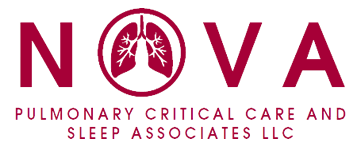Emphysema is a type of chronic obstructive pulmonary disease (COPD) characterized by damage to the air sacs (alveoli) in the lungs. These air sacs gradually become weakened and stretched out, leading to permanent enlargement and loss of elasticity. This structural damage impairs the ability of the air sacs to effectively exchange oxygen and carbon dioxide during breathing.
The primary cause of emphysema is long-term exposure to irritants, particularly cigarette smoke. Other factors such as exposure to air pollution, industrial dust, and certain genetic conditions may also contribute to the development of emphysema.
The main symptoms of emphysema include shortness of breath, chronic cough, wheezing, and chest tightness. These symptoms typically worsen over time and can significantly impact an individual’s quality of life, making everyday activities challenging.
Diagnosis of emphysema often involves a combination of medical history, physical examination, lung function tests (such as spirometry), and imaging studies (such as chest X-rays or CT scans).
Treatment for emphysema aims to relieve symptoms, slow disease progression, and improve quality of life. This may include:
- Quitting smoking: If the individual smokes, quitting smoking is essential to prevent further lung damage and slow the progression of emphysema.
- Medications: Bronchodilators, corticosteroids, and other medications may be prescribed to help alleviate symptoms and reduce inflammation in the airways.
- Pulmonary rehabilitation: This comprehensive program typically includes exercise training, breathing techniques, education about lung disease, and nutritional counseling to help improve lung function and overall well-being.
- Oxygen therapy: Supplemental oxygen may be prescribed for individuals with severe emphysema to improve oxygen levels in the blood and reduce symptoms of shortness of breath.
- Surgical interventions: In some cases, surgical options such as lung volume reduction surgery or lung transplantation may be considered for individuals with severe emphysema who do not respond adequately to other treatments.
While emphysema is a chronic and progressive disease, lifestyle modifications and medical interventions can help manage symptoms and improve quality of life for affected individuals. Early diagnosis and prompt treatment are crucial in minimizing the impact of emphysema on respiratory function and overall health.
What types of Doctors Treat emphysema
Several types of doctors and healthcare professionals may be involved in the diagnosis and treatment of emphysema. These include:
- Pulmonologists: Pulmonologists are physicians specializing in the diagnosis and treatment of diseases affecting the respiratory system, including emphysema. They have expertise in managing chronic lung conditions and may oversee the comprehensive care of individuals with emphysema.
- Primary care physicians (PCPs): Primary care physicians, such as family doctors or internists, often play a key role in the initial evaluation and management of emphysema. They may diagnose the condition, provide initial treatment, and coordinate referrals to specialists if needed.
- Respiratory therapists: Respiratory therapists are healthcare professionals trained to assess and treat respiratory disorders. They may assist in pulmonary function testing, provide education on inhaler techniques, and oversee pulmonary rehabilitation programs for individuals with emphysema.
- Thoracic surgeons: Thoracic surgeons specialize in surgical procedures involving the chest, including interventions for advanced emphysema such as lung volume reduction surgery (LVRS) or lung transplantation. They may be involved in evaluating candidates for surgical interventions and performing these procedures.
- Critical care specialists: Critical care specialists, also known as intensivists, may be involved in the management of individuals with severe emphysema who require intensive care due to respiratory failure or exacerbations of their condition.
- Allergists/Immunologists: Allergists and immunologists may be consulted in cases where allergies or immune-mediated conditions contribute to respiratory symptoms or exacerbate emphysema.
- Cardiologists: While emphysema primarily affects the lungs, it can also have implications for the cardiovascular system, particularly in cases of advanced disease or coexisting heart conditions. Cardiologists may be involved in managing cardiovascular risk factors and comorbidities in individuals with emphysema.
- Occupational medicine specialists: Occupational medicine specialists may be consulted in cases where occupational exposures contribute to the development or exacerbation of emphysema, such as exposure to dust, chemicals, or fumes in the workplace.
These healthcare professionals often work collaboratively as part of a multidisciplinary team to provide comprehensive care for individuals with emphysema. Treatment plans are typically tailored to each individual’s specific needs and may include a combination of medical therapy, pulmonary rehabilitation, lifestyle modifications, and, in some cases, surgical interventions.
